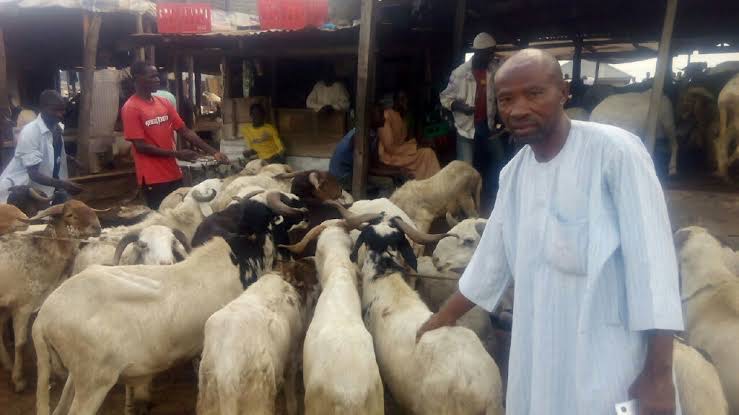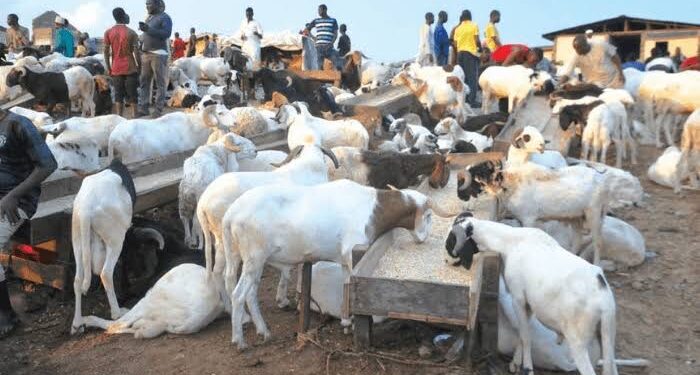It was a gloomy Salah for Muslims due to unchecked inflation which marred celebrations across the country. This was as traders of essential commodities like rice, semovita, beverages, tomatoes, pepper, etc. all recorded low sales.
The somber celebrations may also be linked to the latest inflation figures released by the National Statistics Office over the weekend, which showed that the May figure rose for the fourth consecutive month to 33.95 percent from 33.69 percent in April. The inflationary effect had a similar impact on food inflation, which rose to 40.66 percent in May, 15.84 percentage points higher than the rate recorded in May 2023 (24.82 percent).
Some Muslims who spoke to Journalists individually lamented that their purchasing power has declined over the months, which has resulted in a decline in disposable income available to them.
Alhaji Kareem Ambari, a Muslim leader, said he had to reduce the number of rams he usually buys from four to two. He said the price of the seized rams, which usually cost about 150,000 naira, is now 400,000 naira, and the same goes for all other food items, which have also seen their prices soar.

Another Muslim, Sule Ajadi, said he and fellow Muslims had to join forces to buy the cow, which cost about 800,000 naira split among all donors.
The cow was previously sold for about 500,000 naira but was easily purchased as the economic situation called for prudent spending. Bilikis Amuda said she had to share the cost of the Salah with her husband.
She said her husband bought a miniature ram for 250,000 naira while she stocked up on food and other materials that cost about 200,000 naira out of an initial budget of 100,000 naira. She said a carton of 24 cans of Malt now sells for 11,000 naira instead of 6,500 naira, and a carton of Chi Exotic juice sells for 12,000 naira instead of 5,850 naira.
Meanwhile, a pack of 12 cans of Coca-Cola will sell for 3,400 naira instead of 2,100 naira. On food items, he said a bag of long grain rice now sells for 85,000 naira while 10kg of Semovita goes for 13,000 naira instead of the previous 7,000 naira.
At the popular Kararam market in Ogun State, most ram sellers were unhappy with sluggish sales due to the low purchasing power of Nigerians. They complained that the cost of transporting rams from the north to the south is high, negatively impacting their profit margins.
They said the high price of diesel, which currently exceeds N1,200 per litre, was responsible for the high price of ram.
According to one of the biggest ram dealers in the market, Alhaji Abubakar Aliyu, the cheapest ram in the market goes for between N380,000 and N400,000. The situation was similar at the Ashedo sheep market as most buyers lamented the high price of sheep.

The NBS said the year-on-year increase in food inflation was due to the following items; semovita, oatmeal, packaged yam flour, garri, beans, etc (which come under the bread and cereals category), potato, yam, water yam, etc (which come under potato, yam and other tubers category), palm oil, vegetable oil etc (which come under oils and fats category), cod, mudfish, crayfish etc (which come under fish category), cow head, live chicken, pig head, bush meat etc (which come under meat category).
According to the agency, the monthly food inflation rate for May 2024 was 2.28 percent, down 0.22 percentage points compared to the rate recorded in April 2024 (2.50 percent).”The average annual rate of inflation for food items for the 12 months ending May 2024, compared to the average for the previous 12 months, was 34.06 percent, up 10.41 percentage points from the average annual rate of change for May 2023 (23.65 percent),” the report said.
































